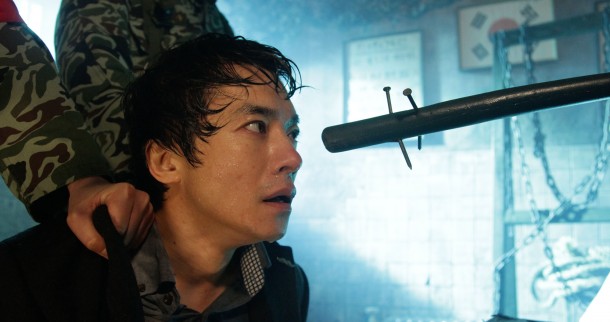
Director/writer: Kim Ki-Duk
Don Lee, Kim Young-min, Lee Yi-kyung, Cho Dong-in, Yoo Teo, Ahn Ji-hye, Jo Jae-ryong, Kim Joong-ki
Drama, South Korea, 122 min
Kim Ki-Duk hasn’t been given a competition berth at Venice since he controversially won the Golden Lion in 2012 (beating off The Master almost by proxy), so it’s to the second-string Venice Days strand that the veteran Korean prankster goes. And it’s a shame if he’s completely side-lined by the critical fraternity here, even if One On One is a lesser film than his grisly but hilarious Moebius (2013), which premiered here last year out of competition. His latest somehow remains an intriguing skew-eyed look into the pain of violence n the giving as well as in the gruesome receiving.
Moebius began with a castration and got grislier from there, and alarm bells start ringing from the off as Kim launches into a brutal murder of a teenage girl in the opening frames. But even with its lot of ultra-violence and extended torture sequences, there’s a more nuanced tone at work as the narrative gathers momentum. Months after the murder, a group of mysterious mercenaries abduct the killers and those who authorised the murder one by one, torturing them through rusty nails, hammers, pincers, and electrocutions. But they only torture until the perpetrators admit their part in the plot, letting them live with any shame or indeed pride they might’ve held. It starts with dogsbodies, and the film takes us up the chain of command to the top of a web of gangsters. At first the men are apologetic and say they only did what they were told, but later the top men say they did it because it was a just action – one whose motives are never conclusively revealed. But when one character tells its leader (Don Lee) that there is “something sad in you”, he reflects a man whose viciousness is as painful to him as it is to those he gives it out to (well, almost).
At first the film’s kill-list narrative suggests we’re in the territory of a genre flick, but Kim plays with the ideas that the film present and it becomes a more than adequate allegory on the echoes of genocide, where culprits at different points of the chain of command have different explanations for unforgivable crimes. The paramilitary group themselves disguise themselves in various garbs – from an anti-communist brigade to a shady government organisation, as if to heighten the sense that this story cold play out on different levels in different settings.
The film’s violence becomes so routine that it may well bore some, but that’s part of the point, so numbed are these characters to a world where violence begets violence. One of the members of the paramilitary is a victim of domestic violence, raped in a scene that might’ve just have crossed an exploitative line here. But as one character says, “dictators are in families just as much as countries”, and I found myself considering, among the expected bloody finale, the implications of how violent men are often as much troubled as troubling.
SCREENING DURING THE LONDON KOREAN FILM FESTIVAL 2014 | ONE ON ONE PREMIERED AT THE VENICE INTERNATIONAL FILM FESTIVAL |
Q&A with the Director at the Villa Degli Autori, Venice Lido [youtube id=”ergRH05lqnw” width=”600″ height=”350″]